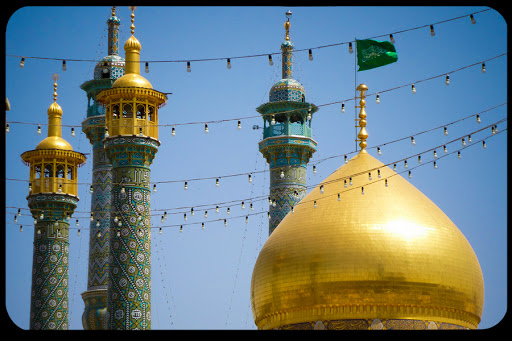The four-day meeting in March led by Bishop Richard Pates of Des Moines was not made public until the same week the Vienna talks began. Pates
said he, the retired archbishop of Washington Cardinal Theodore McCarrick, and auxiliary Bishop Denis Madden of Baltimore met in Qom with several prominent Islamic clerics to “promote understanding between the peoples of Iran and the United States.” Pope Francis didn’t send an envoy of his own to Qom (and likely declined to, if his relations with the Argentinian authorities are any indication). But Pates said the get-together was in line with the new pontiff’s view that “dialogue is the key to discovering truth and avoiding misunderstanding.”
If only the ayatollahs in Qom believed that. Among the clerics who participated in the summit was Ayatollah Morteza Moghtadaei, one of Supreme Leader Khamenei’s earliest and staunchest supporters. At the time of the meeting, Khamenei was holding (and continues to hold) Christian pastor Youcef Nadarkhani behind bars for his faith. Some days after the bishops left Qom, Khamenei publicly
mused whether the Holocaust had happened. The bishops also met with Ayatollah Abdollah Javadi-Amoli who
implored Americans in 2004 to “give up” the idea that Iran would cease nuclear production. “Don’t even think that Iran will relinquish scientific progress,” he said.
Early reports from the bishop-ayatollah conference suggest the Islamic Republic still has no intention of signing any deal that requires the rollback of its nuclear capabilities. Bishop Pates
told the Catholic News Service that “discussions considered the morality of a government obtaining weapons capabilities in order to defend its people from outside threat.” The Islamic Republic has almost consistently told the world that its nuclear research is for peaceful purposes, but ayatollahs in Qom seem to have argued for the production and possession of warheads as a security measure.
Pates said that the ayatollahs also discussed economic sanctions, a policy the bishops have reliably opposed. They
urge congress in an official position paper “not [to] take any actions, such as passing legislation to impose new or conditional sanctions on Iran, which could undermine the negotiation process.”
But that might be naïve. The good bishops like to employ the “trust” half of Ronald Reagan’s useful maxim, but won’t have anything to do with “verify.” When Cardinal McCarrick returned from his trip to Qom, he
told FARS News Agency that “Iranians stick to their words and promise, and hopefully the Iranians will see that the West is willing to stop these very difficult sanctions and promote cooperation between the Iran and the world.”
While Pates and his team “saw no particular evidence of poverty or other obvious effects of the sanctions,” one ayatollah told the bishops that his relatives have died of cancer because the medicine was not available. The ayatollah knows medicine is exempt from any sanction, but told his sob story anyway. Bishop Pates said that the Iranian people have rallied and are “Suffering for a patriotic purpose.”
But the good bishops may have been duped. Amir Fakhravar, a research fellow at the Institute of World Politics who once called Evin prison home, says democrats in Iran want the United States to pursue tougher sanctions — even an oil embargo. “The Islamic Republic will be forced into abandoning its nuclear program,” Fakhravar
told Wikinews in April 2013, “when oil sanctions dry up the money supply.”
Fakhravar may not be in Iran anymore (he’d be “shot on the spot” if he dared go back), but his global network of young Iranians is vast and perhaps more proficient in foreign policy than a bishop. Still, Cardinal McCarrick
told David Gregory in a May 18, 2014 web edition of NBC’s
Meet the Press that “there should be a religious channel in handling things where you do not have the diplomatic channel.”
The retired cardinal should know that he and his fellow bishops dilute their authority when they begin to offer specific policy prescriptions or pretend to be diplomats. Good Catholics can disagree on matters like economic sanctions on Iran and ought not to worry about their spiritual shepherds sending them to the confessional when they do.
Perhaps the most disturbing bit of news from the kumbaya in Qom is what the bishops didn’t say. The Catholic News Service report mentions that the bishops met with “Christian leaders” in Iran, but didn’t elaborate. Pates’s team had nothing to say to the ayatollahs about religious freedom? Did they drop Youcef Nadarkhani’s name? What exactly were the bishops’ priorities in Qom?
If these bishops would ditch their back-channel diplomacy and evangelize instead, persecuted Christians in Iran might have a prayer.
Nicholas G. Hahn III is the editor of RealClearReligion.org.

